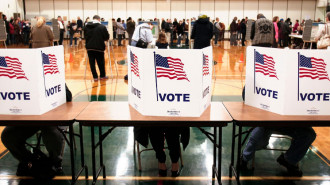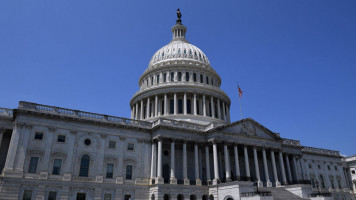Myanmar: First Rohingya refugees repatriated amid rights outcry
Myanmar's government said it has repatriated the first family of Rohingya refugees, among 700,000 who fled a brutal crackdown, but the move was slammed by rights groups as a publicity stunt which ignored warnings over the security of returnees.
The stateless Muslim minority has been massing in squalid refugee camps across the border in Bangladesh since the Myanmar army launched a ruthless campaign against the community in northern Rakhine state last August.
The UN says the operation amounts to ethnic cleansing, but Myanmar has denied the charge, saying its troops targeted Rohingya militants.
Bangladesh and Myanmar vowed to begin repatriation in January but the plan has been repeatedly delayed as both sides blame the other for a lack of preparation.
According to a Myanmar government statement posted late on Saturday, one family of refugees became the first to be processed in newly built reception centres earlier in the day.
"The five members of a family... came back to Taungpyoletwei town repatriation camp in Rakhine state this morning," said a statement posted on the official Facebook page of the government's Information Committee.
Bangladesh's refugee commissioner, Mohammad Abul Kalam, told AFP the family had been living in a camp erected on a patch of "no man's land" between the two countries.
Several thousand Rohingya have been living in the zone since August, crammed into a cluster of tents beyond a barbed-wire fence which roughly demarcates the border zone between the two countries.
"They were not under our jurisdiction, therefore, we cannot confirm whether there would be more people waiting to go back (to Myanmar)," he told AFP.
A Rohingya community leader in the camp also confirmed the family's return.
According to the Myanmar statement, immigration authorities provided the family with National Verification Cards, a form of ID that falls short of citizenship and has been rejected by Rohingya leaders who want full rights.
 |
A public relations exercise in an attempt to deflect attention from the need for accountability for crimes committed in Rakhine State |  |
The post did not mention plans for further returnees expected in the near future.
The move comes despite warnings from the UN and other rights groups that a mass repatriation of Rohingya would be premature, as Myanmar has yet to address the systematic legal discrimination and persecution the minority has faced for decades.
Andrea Giorgetta from the International Federation for Human Rights (FIDH) blasted the repatriation announcement as "a public relations exercise in an attempt to deflect attention from the need for accountability for crimes committed in Rakhine State".
The Rohingya are reviled by many in the Buddhist-majority country, where they are branded as illegal "Bengali" immigrants from Bangladesh, despite their long roots in Rakhine state.
They have been targeted by waves of violence, systematically stripped of their citizenship and forced to live in apartheid-like conditions with severely restricted access to health care, education and other basic services.
![rohingya [getty] rohingya [getty]](/sites/default/files/styles/large_16_9/public/media/images/1C6A8526-ECFA-4876-97AD-1C91E27574A0.jpg?h=d1cb525d&itok=3u-szJ7u)
![Palestinians mourned the victims of an Israeli strike on Deir al-Balah [Getty]](/sites/default/files/styles/image_684x385/public/2024-11/GettyImages-2182362043.jpg?h=199d8c1f&itok=xSHZFbmc)


![The law could be enforced against teachers without prior notice [Getty]](/sites/default/files/styles/image_684x385/public/2178740715.jpeg?h=a5f2f23a&itok=hnqrCS4x)
 Follow the Middle East's top stories in English at The New Arab on Google News
Follow the Middle East's top stories in English at The New Arab on Google News


